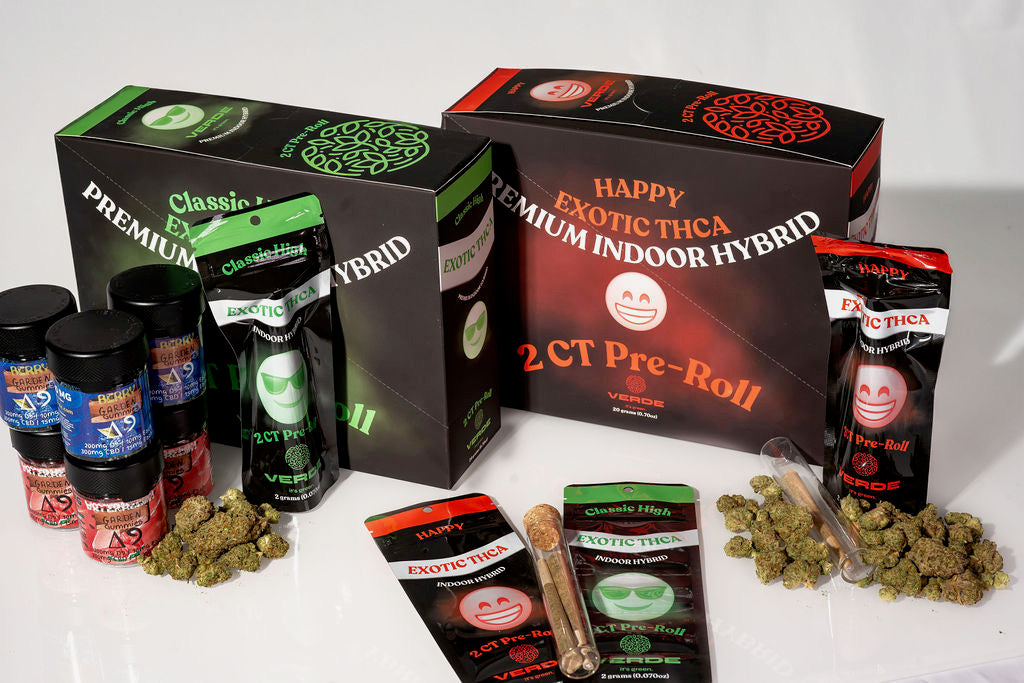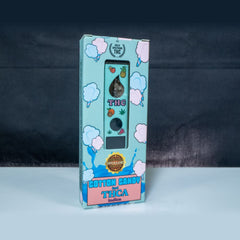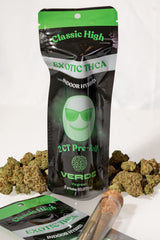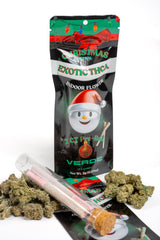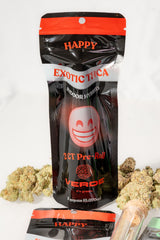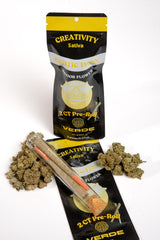
Debunking Common Myths About Hemp and THC
Share
Debunking Common Myths About Hemp and THC
Introduction
Hemp and THC have long been misunderstood, often leading to misinformation about their effects, legality, and uses. Many people still confuse hemp with marijuana, assume THC is always intoxicating, or believe hemp has no benefits.
In this article, we’ll debunk the most common myths surrounding hemp and THC, helping you separate fact from fiction.
Myth #1: Hemp and Marijuana Are the Same
Fact: Hemp and marijuana come from the same plant species, but they are not the same.
Both hemp and marijuana are varieties of Cannabis sativa, but they differ in chemical composition and use:
Hemp contains less than 0.3% THC (non-intoxicating) and is grown for CBD, textiles, food, and wellness products.
Marijuana has higher THC levels (30%) and is used for medical and recreational cannabis.
Myth #2: THC Always Gets You High
Fact: THC has different effects depending on its concentration and interaction with other cannabinoids.
The THC found in hemp is only present in trace amounts (0.3%), which is too low to cause psychoactive effects.
Delta-9 THC (high concentrations in marijuana) is what produces the euphoric high.
Hemp-derived cannabinoids (CBD, CBG, CBN) can interact with THC to reduce its intoxicating effects through the entourage effect.
Myth #3: Hemp Has No Medicinal Benefits
Fact: Hemp contains powerful compounds that support wellness.
Hemp is rich in CBD, essential fatty acids, terpenes, and antioxidants, which contribute to:
Stress and anxiety relief
Pain and inflammation reduction
Better sleep quality
Skin and hair health
Digestive and immune system support
Myth #4: Hemp is Illegal in the U.S.
Fact: Hemp is federally legal under the 2018 Farm Bill.
Hemp and hemp-derived products are legal in the U.S. as long as they contain less than 0.3% THC.
However, state laws vary, and some states restrict hemp-derived cannabinoids like delta-8 THC, so always check local regulations.
Myth #5: Hemp Seeds and Hemp Oil Contain CBD
Fact: Hemp seeds and CBD oil come from different parts of the plant.
Hemp seed oil is made from pressed seeds and contains no CBD or THC, but is rich in omega-3 and omega-6 fatty acids.
CBD oil is extracted from the flowers and leaves of the hemp plant, where cannabinoids are concentrated.
Myth #6: You Can Fail a Drug Test from Using Hemp Products
Fact: It depends on the type of hemp product you use.
CBD isolate & broad-spectrum CBD (THC-free) will not show up on drug tests.
Full-spectrum hemp contains trace amounts of THC (0.3%), which could result in a positive test if consumed in large amounts.
Final Thoughts
Misinformation about hemp and THC has led to confusion, but the truth is that hemp is a safe, legal, and beneficial plant with numerous health and wellness applications. By understanding the science and legal distinctions, we can make informed decisions about hemp-derived products and their potential benefits.
